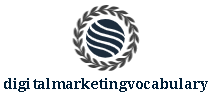Search Engine Optimization (SEO): Key Strategies for Success
In the competitive world of digital marketing, Search Engine Optimization (SEO) is a critical tool for businesses striving to increase their online presence. SEO involves the strategic use of keywords, content optimization, and technical enhancements to improve a website’s rank on search engines. By mastering SEO, companies can significantly boost traffic to their sites, leading to increased brand awareness and sales opportunities.
We all know that navigating the complexities of SEO can be overwhelming. With constantly changing algorithms and best practices, it’s important to stay informed and adaptable. Understanding the core principles of SEO allows us to optimize our digital strategies and reach our target audience more effectively.
Our goal is to break down the intricate world of SEO into easily digestible concepts. We aim to guide our readers through the essentials of SEO, from keyword research to technical SEO considerations, empowering you to make informed decisions that will enhance your digital marketing efforts.
Fundamentals of SEO
In digital marketing, mastering the basics of SEO is crucial for improving website visibility and driving organic traffic. Effective SEO revolves around search engine functionality, keyword emphasis, and adopting best practices for online content.
Understanding Search Engines
Search engines are the backbone of online navigation, helping us find desired information quickly. They use algorithms to index, rank, and retrieve data based on user queries. These algorithms consider hundreds of factors, including content relevance, site speed, and user engagement.
Web crawlers, also known as spiders, systematically browse the internet to index websites. By understanding how these crawlers work, we can enhance our websites' structure and content, ensuring they are easily accessible. Well-organized content helps crawlers index pages more effectively.
A mobile-friendly design is critical due to the increasing number of mobile users. Implementing responsive web design can greatly improve user experience and ranking potential. We focus on factors like page load speed, ease of navigation, and site architecture to align with search engine requirements.
Importance of Keywords
Keywords are the terms and phrases users type into search engines. Effective keyword usage bridges the gap between what people are searching for and the content we provide. Identifying high-traffic keywords helps in crafting content that resonates with our target audience.
Using tools like Google Keyword Planner can aid in discovering relevant keywords and evaluating their competitiveness. It’s vital to consider user intent while selecting keywords, ensuring that our content aligns with the needs and expectations of searchers.
Incorporating keywords naturally into meta tags, headers, and content is crucial. Excessive keyword usage, known as keyword stuffing, can harm a site’s ranking. Therefore, balancing keyword density to improve search visibility while maintaining readability is key.
SEO Best Practices
Adhering to SEO best practices ensures our content ranks well and meets user needs. High-quality, original content is essential. Offering valuable and credible information can significantly improve user engagement and search engine rankings.
Technical aspects, such as optimizing title tags, meta descriptions, and alt text for images, cannot be overlooked. Effective internal linking also enhances site navigation and encourages users to explore other pages.
Regularly updating content keeps it relevant and appealing to both users and search engines. Monitoring website performance using tools like Google Analytics helps us understand user behavior and optimize accordingly. Employing these practices promotes long-term SEO success.
Advanced SEO Strategies
In our exploration of advanced SEO strategies, we focus on refining technical elements, crafting engaging content, and enhancing link-building methods. These elements are crucial for boosting search visibility and maintaining a competitive edge.
Technical SEO
Technical SEO is the foundation of a well-functioning website. We emphasize the importance of optimizing site speed, as faster loading times enhance user experience and improve search rankings. Implementing schema markup helps search engines understand your content better, potentially leading to rich snippets in search results.
Another key aspect is ensuring mobile-friendliness. With the majority of searches occurring on mobile devices, a responsive design is critical. We recommend using tools like Google Search Console to monitor site performance and identify technical issues that need resolution. Properly configured XML sitemaps and robot.txt files also guide search engines in crawling your site efficiently.
Content Strategy
Creating relevant, high-quality content is pivotal in engaging users and enhancing SEO. We focus on researching and targeting long-tail keywords, as these are often less competitive and align closely with user intent.
Incorporating multimedia elements like images and videos can significantly enhance content appeal. Using structured data markup, we enhance content categorization, enabling search engines to display it more prominently. Regular content audits ensure that outdated or underperforming pages are refreshed or removed, keeping our content strategy robust and effective.
Link Building Techniques
Link building remains a key component of SEO. Our focus is on acquiring high-quality, relevant backlinks. Guest posting on reputable sites in our industry not only builds links but also establishes authority.
We actively engage in broken link building, a process that involves finding and replacing broken links with our content. This method helps in gaining quality links and fostering beneficial relationships with other site owners. To diversify our link profile, we utilize resources like competitor analysis tools to identify link opportunities that align with our strategic goals. Engaging with our online community through forums and Q&A sites is another effective avenue for building links and enhancing brand visibility.

 EN
EN DK
DK SR
SR DE
DE FI
FI